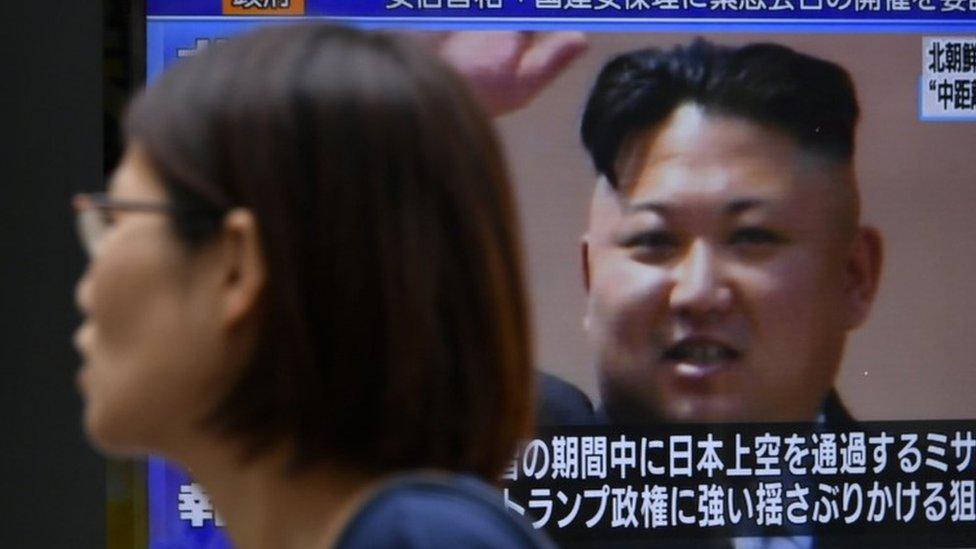North Korea nuclear crisis: US seeks tough UN approach
- Published
US ambassador Nikki Haley: "Kim Jong-un is begging for war"
The US envoy to the UN has urged the Security Council to take the "strongest possible measures" against North Korea after its latest nuclear test.
"The time has come to exhaust all diplomatic means before it is too late," Nikki Haley told an emergency meeting of the council in New York.
The US will circulate a draft resolution, for a vote next Monday.
South Korea is poised to scrap a warhead weight limit on its own missiles after talks with the US.
President Moon Jae-in reached agreement by phone with his counterpart, Donald Trump. Missiles are currently capped at 500kg (1,100lb).
The country carried out live-fire exercises on Monday, simulating an attack on the North's nuclear test site.
Reports suggest the North is preparing new test missile launches. It tested a nuclear bomb underground on Sunday. Estimates of its power range from 50 kilotonnes to 120 kilotonnes. A 50kt device would be about three times the size of the bomb that destroyed Hiroshima in 1945.
In other developments:
German Chancellor Angela Merkel said she would press for tougher EU sanctions on North Korea, agreeing with Mr Trump by phone on the need for stricter sanctions
Swiss President Doris Leuthard said her country was prepared to act as a mediator and called for more discreet negotiations, saying "Twitter won't be an adequate instrument"
Japan is planning, in the event of war, for a mass evacuation of nearly 60,000 Japanese citizens currently living in or visiting South Korea, Nikkei Asian Review reports, external
'Begging for war'
Opening Monday's meeting, UN Under Secretary General Jeffrey Feltman said North Korea's actions were destabilising global security, and he called on Pyongyang to abide by Security Council resolutions.
"The DPRK [North Korea] is the only country that continues to break the norm against nuclear test explosions," he said.
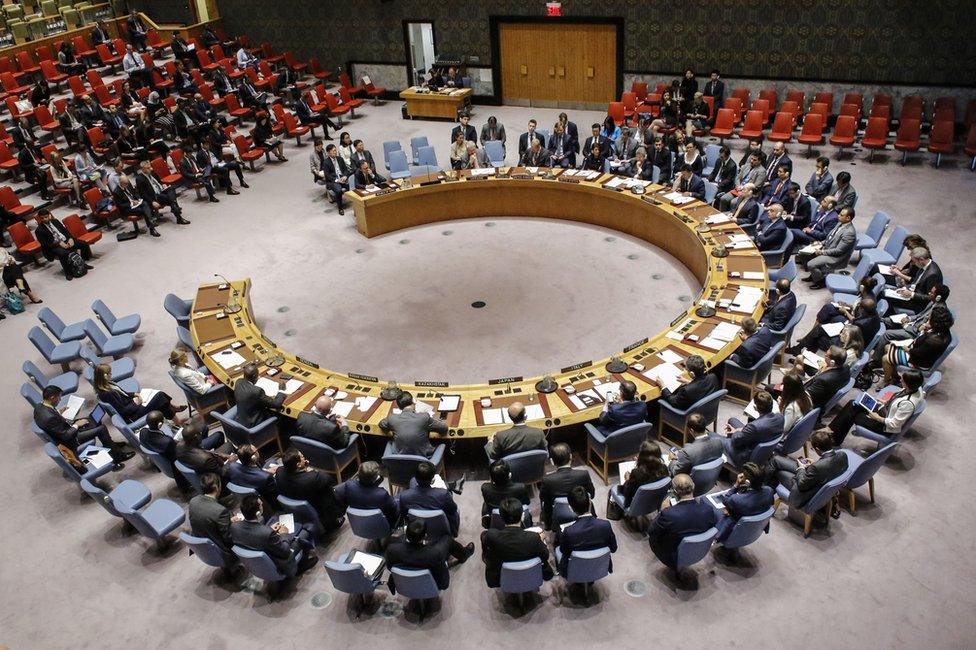
The UN Security Council last imposed sanctions in August, targeting North Korean exports
Ms Haley argued that only the strongest sanctions would enable the problem to be resolved through diplomacy.
North Korean leader Kim Jong-un had shown through his actions that he was "begging for war", she said.
"War is never something the United States wants," she continued. "We don't want it now but our country's patience is not unlimited."
She was speaking after President Trump warned the US might consider stopping all trade with any country doing business with North Korea.
"The United States will look at every country that does business with North Korea as a country that is giving aid to their reckless and dangerous nuclear intentions," Ms Haley said.
The British ambassador to the UN, Matthew Rycroft, said direct talks with North Korea were only possible if Pyongyang stopped the escalation.
"Dialogue will always be our end goal but returning to dialogue without a serious sign of intent from Pyongyang would be a set-up to failure," he said. "North Korea must change course to allow a return to dialogue."
China's envoy to the UN, Liu Jieyi, reiterated a call for all sides to return to negotiations. "The peninsula issue must be resolved peacefully," he said. "China will never allow chaos and war on the peninsula."

What happens next?
By Jonathan Marcus, BBC defence and diplomatic correspondent
China is key but it is a conflicted party. On the one hand it does not want to see a nuclear-armed North Korea and it has made its view clear to Pyongyang on many occasions.
However, it does not want to see the North Korean regime swept away. This would result in millions of refugees flooding into China and would probably result in a unified Korea very much in the US orbit. This is seen in Beijing as worse than having a difficult nuclear neighbour.
If China were to take the view that the coincidence of a rapidly advancing North Korean nuclear programme and the uncertainties of the Trump administration's diplomatic capabilities means that there is a very real risk of misunderstanding and catastrophe, then maybe it might bring much greater pressure to bear on Pyongyang.
North Korea is a very isolated country and China is both its major ally and economic prop. There is a lot more that China can do. North Korea's recent testing has been as much an embarrassment to China as it has angered the US. But the Chinese have a difficult diplomatic calculation to make.

What other sanctions remain?
Last month, the Security Council voted unanimously to ban North Korean exports and limit investments in the country.
Ms Haley did not spell out what additional measures might be taken but diplomats have suggested an oil embargo would have a crippling effect.
There could also be a ban on the North's national airline, curbs on North Koreans working abroad, and asset freezes and travel bans on officials.
How big was the latest test?
It was North Korea's sixth and most powerful nuclear test to date. The US Geological Survey recorded a resulting tremor at 6.3 magnitude.
Nuclear N Korea: What do we know?
Kim Jong-un was pictured on camera being shown what state media said was a new type of hydrogen bomb.
South Korea said it was now presumed that the North had reduced its nuclear warhead in size to below 500kg, and would be able to attach one to an intercontinental ballistic missile (ICBM).
But analysts have said the North's claims about miniaturisation should be treated with considerable caution.
Earlier on Monday, a South Korean defence ministry official said there were signs of "possibly more ballistic missile launches", including an ICBM.
How else are the South and its US ally responding?
Monday's drills simulated the targeting of the Punggye-ri nuclear site in Kilju County, where North Korea carried out its bomb test. Missiles were fired from the ground and rockets from fighter jets.
South Korea carries out live-fire drills in response to the nuclear test
The defence ministry in Seoul said there would be more live-fire drills in the South this month, involving Taurus air-to-surface missiles mounted on F-15 jets.
The ministry also told parliament the US would seek to deploy a nuclear-powered aircraft carrier to seas off the peninsula.
Four more launchers of the US Thaad (Terminal High-Altitude Area Defence) missile defence system -strongly opposed by China and Russia - would also be deployed to join two already at a site in Seongju, south of Seoul.

North Korea's nuclear tests

- Published3 September 2017
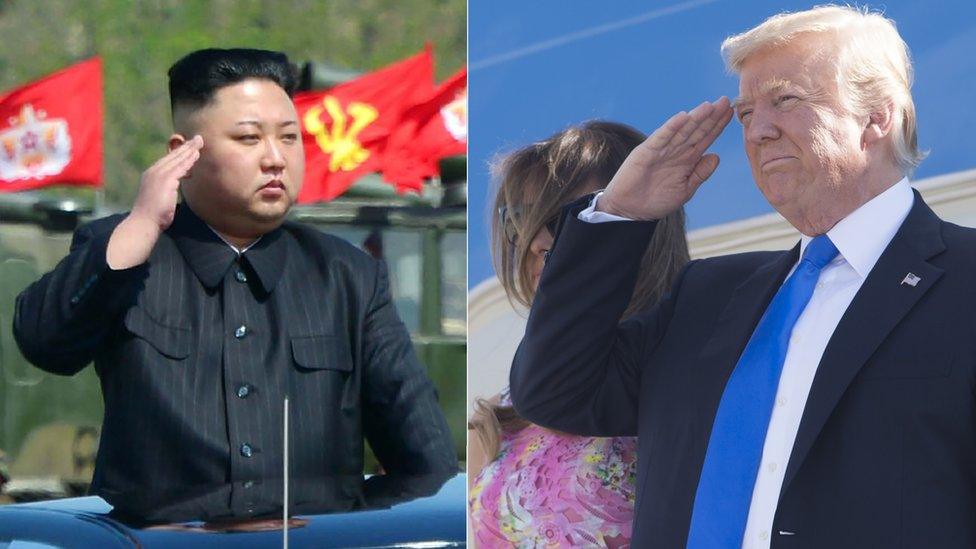
- Published29 August 2017
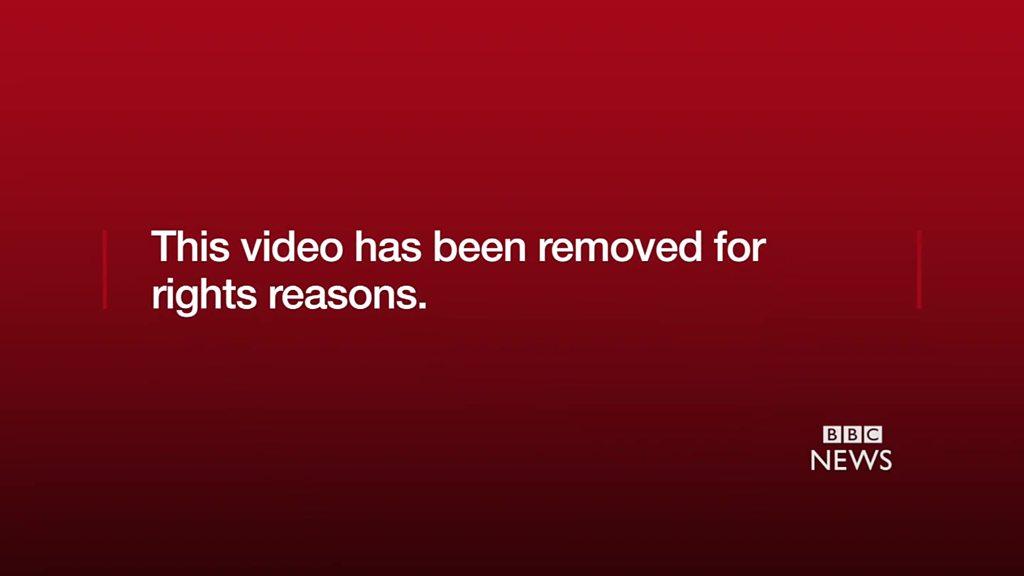
- Published29 August 2017
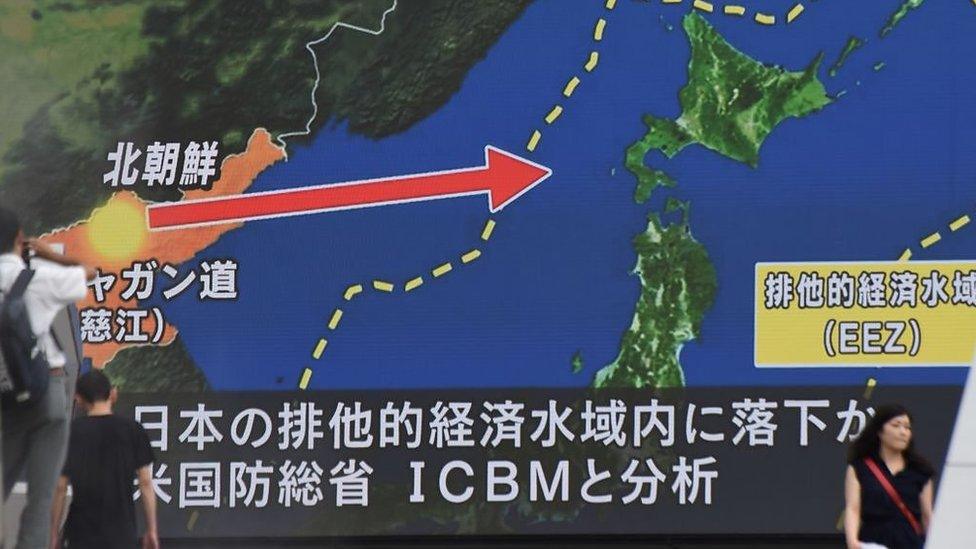
- Published29 August 2017
